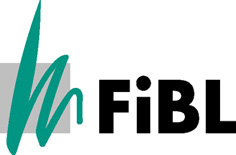
FiBL is an independent, non-profit, research institute with the aim of advancing cutting-edge science in the field of organic agriculture. FiBL’s research team works together with farmers, researchers and technicians from partner organizations, to develop innovative and cost-effective solutions to boost agricultural productivity while never losing sight of environmental, health and socio-economic impacts. Alongside practical research, FiBL gives high priority to transferring knowledge into agricultural practice through advisory work, training and conferences. FiBL has offices in Switzerland, Germany and Austria and numerous projects and initiatives in Europe, Asia, Latin America and Africa.
FiBL Austria regards itself as a service centre and interface between research and practice, coupled with an active role in networking all stakeholders along the organic food production chain. The promotion of organic farming at farm, local and national level is a core competency. FiBL Austria cultivates intensive cooperation with Austrian research partners and partners in education, training and advisory services. At the international level there is strong cooperation with FiBL Switzerland, FiBL Germany and the Bioinstitut in the Czech Republic. The cooperation with FiBL Switzerland is very close and allows smooth knowledge sharing and joint project implementation outside Europe. One of the key areas of FiBL in Africa is soil fertility management and the research-extension nexus of organic and ecological agriculture. The holistic and integrated approaches supporting the societal goals of hunger elimination, soil fertility restoration, biodiversity and balanced rural development are leading principles of FiBL’s work in Africa. FiBL’s existing network is centered on West and East Africa, covering both research and training and farmer organizations open to conservation agriculture, ecological farming and sustainable agriculture (hence not limited to certified organic farming).
FiBL’s role in ConneSSA is to facilitate the descriptions of the farming systems and the societal components of the sites and to assure a smooth participatory approach implementation.
